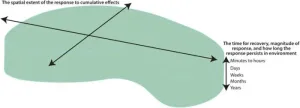(Press-News.org) Peer-reviewed / Empirical study
New study challenges political claims that some high-income countries have achieved “green growth”– revealing that under current growth-oriented strategies, emission reductions in these nations fall drastically short of meeting the climate goals and fairness requirements of the Paris Agreement.
If current trends continue, even the 11 high-income countries that have "decoupled" carbon emissions from GDP growth would on average take over 200 years to get their emissions close to zero, and would emit more than 27-times their fair share of the “global carbon budget” that must not be exceeded if we are to avert catastrophic global warming beyond 1.5 C.
The authors argue that the pursuit of economic growth in high-income countries is at odds with internationally agreed climate targets, and call for transformative “post-growth” climate policy centred around sufficiency, fairness, and wellbeing.
The emission reductions in the 11 high-income countries that have “decoupled” CO2 emissions from Gross Domestic Product (GDP) fall far short of the reductions that are necessary to limit global warming to 1.5°C or even just to “well below 2°C” and comply with international fairness principles, as required by the Paris Agreement, according to a paper published in The Lancet Planetary Health journal.
Politicians and media have been celebrating recent decoupling achievements of high-income countries as “green growth” – claiming this could reconcile economic growth with climate targets. To investigate this claim, the new study compared carbon emission reductions in these countries with the reductions required under the Paris Agreement.
“There is nothing green about economic growth in high-income countries”, says lead author of the study, Jefim Vogel, from the Sustainability Research Institute at the University of Leeds, UK. “It is a recipe for climate breakdown and further climate injustice. Calling such highly insufficient emission reductions ‘green growth’ is misleading, it is essentially greenwashing. For growth to be legitimately considered ‘green’, it must be consistent with the climate targets and fairness principles of the Paris Agreement - but high-income countries have not achieved anything close to this, and are highly unlikely to achieve it in the future. Continued economic growth in high-income countries is at odds with the twin goal of averting catastrophic climate breakdown and upholding fairness principles that protect development prospects in lower-income countries. In other words, further economic growth in high-income countries is harmful, dangerous, and unjust.” [1]
The study identified 11 high-income countries that achieved “absolute decoupling” (defined as decreasing CO2 emissions alongside increasing GDP) between 2013 and 2019, which were Australia, Austria, Belgium, Canada, Denmark, France, Germany, Luxembourg, the Netherlands, Sweden, and the United Kingdom. For each country, it compares ‘business-as-usual’ future emission reduction rates to the “Paris-compliant” rates needed to comply with the country’s “fair-share” (or population-proportionate share) of the respective global carbon budget that must not be exceeded if we are to limit global warming to 1.5°C (the aspirational Paris target) or even just to 1.7°C (reflecting the lower-ambition Paris target of “well below 2°C”). [2, 3]
None of the high-income countries who have “decoupled” emissions from growth have achieved emission reductions anywhere near fast enough to be Paris-compliant. At current rates, these countries would on average take over 200 years to get their emissions close to zero, and would emit more than 27 times their fair share of the global carbon budget for 1.5°C.
The scale of the gap between achieved and Paris-compliant emission reductions is dramatic. Among the 11 high-income countries examined, emission reductions between 2013 and 2019 were on average just 1.6% per year. By contrast, reduction rates of 30% per year are needed by 2025 for countries to comply with their fair-shares of the global carbon budget for 1.5°C.
Countries varied in how far they fell short from the reductions required to stay within their 1.5°C fair-shares. However, even the best-performing country, the United Kingdom, would need to reduce its emissions five times faster by 2025 (from its 2013-2019 average of 3.1% per year to 16% per year by 2025). Other countries would need even greater accelerations of their emission reductions – with Belgium, Australia, Austria, Canada, and Germany needing to reduce their emissions more than 30 times faster than they did between 2013 and 2019 under absolute decoupling.
Even a less ambitious and more dangerous target of limiting global warming to 1.7 °C, with the same fairness requirements, would require average annual emission reductions by 2025 to be eight times faster than what was achieved between 2013 and 2019. Therefore, the authors argue that for most high-income countries, even this less ambitious target appears out of reach within a growth-oriented approach.
In light of their findings, the authors say that attempts to pursue “green growth” in high-income countries will not deliver the emission reductions required to meet the climate targets and fairness principles of the Paris Agreement, and argue that a “post-growth” approach is needed instead.
Co-author of the study, Professor Jason Hickel from the Institute for Environmental Science and Technology at the Autonomous University of Barcelona (ICTA-UAB) in Spain, explains: “The pursuit of economic growth in high-income countries makes it virtually impossible to achieve the required emission reductions. If high-income countries are to meet their Paris obligations, they should pursue post-growth approaches: scale down energy-intensive and less-necessary forms of production, reduce the consumption of the rich, shift from private cars to public transit. This reduces energy demand and enables us to decarbonise much faster.” [1]
Professor Hickel continues, “We also need to accelerate renewable energy deployment and efficiency improvements with public financing. Post-growth can help by liberating productive capacities – factories, labour, materials – that can be remobilized to achieve urgent social and ecological goals. Policies like a green job guarantee can be used for this, ending unemployment and ensuring adequate livelihoods for all. We should focus the economy on what is required for wellbeing, fairness, and ecological sustainability.” [1]
The authors suggest a range of steps that policymakers can take to speed up emission reductions in fair and socially beneficial ways:
Shifting away from economic growth as a core objective, and instead prioritising ecological sustainability, wellbeing, and fairness as development objectives.
Scaling down carbon-intensive and unnecessary forms of production and consumption (e.g. SUVs, air travel, industrial meat and dairy, fast fashion, cruises, mansions, private jets).
Reducing inequalities in income and wealth (e.g. via wealth taxes and maximum income thresholds).
Insulating buildings, and repurposing buildings to minimise new builds.
Reducing food waste and shifting to agro-ecological farming techniques and predominantly plant-based diets.
Introducing laws to lengthen product lifespans, and guarantee rights to repair.
Shifting away from private cars and improving public transit, bike systems and walkability.
Lead author Jefim Vogel explains, “Moving away from economic growth towards post-growth is fundamentally different from a recession, it does not entail hardship or loss of livelihoods. Post-growth can secure and improve livelihoods and wellbeing without economic growth, through policies such as a public job guarantee, worktime reduction, living wages, a minimum income guarantee, and universal access to affordable housing and quality public services.” [1]
Co-author Professor Jason Hickel concludes, “This year’s devastating climate extremes are a dire warning of where we are headed. If we are to prevent even more catastrophic climate breakdown, high-income countries urgently need to pursue post-growth approaches that slash emissions while enhancing wellbeing and fairness.” [1]
Unlike high-income countries, the authors note that lower-income nations have lower emissions per capita, making it more achievable for them to stay within their carbon budget fair-shares, even while increasing their production and consumption for human development objectives. Countries like Uruguay and Mexico are already making strides in this direction. With sufficient access to finance and technology, and a development strategy focused on human needs, lower-income countries should be able to stay within their carbon budgets fair-shares while increasing production and consumption to levels needed to achieve decent living standards for all.
The authors note some limitations of their study. The data does not include emissions from agriculture, forestry, and land use, nor emissions from international aviation and shipping. If included, high-income countries would need to reduce their emissions even faster to comply with the Paris Agreement. They also note that their approach of distributing “fair-shares” of the remaining global carbon budget to countries in proportion to their population size should be considered a minimum interpretation of the fairness principles set out in the Paris Agreement, because this approach does not directly account for historical inequality in emissions (which the authors argue must be compensated in other ways). Stronger interpretations of fairness would however result in smaller carbon budget shares for high-income countries, and thus require even faster emission reductions, making growth-based approaches even more unsuitable, and putting green growth even further out of reach.
NOTES TO EDITORS
There was no additional funding for this study. It was conducted by researchers from the University of Leeds, UK, and the Autonomous University of Barcelona, Spain.
[1] Quote direct from author and cannot be found in the text of the Article.
[2] The study calculated national “fair-shares” of the respective remaining global carbon budgets for 1.5 C or 1.7 C by using the IPCC’s estimates of these global carbon budgets from 2020 and allocating them equally among countries in proportion to national population.
[3] The study looked at consumption-based emissions, rather than territorial emissions, because in a globalised economy, national contributions to global emissions need to reflect emissions contained in trade. Territorial emissions are less suitable, because they do not capture imported goods and services, or offshoring of industrial production.
The labels have been added to this press release as part of a project run by the Academy of Medical Sciences seeking to improve the communication of evidence. For more information, please see: http://www.sciencemediacentre.org/wp-content/uploads/2018/01/AMS-press-release-labelling-system-GUIDANCE.pdf if you have any questions or feedback, please contact The Lancet press office pressoffice@lancet.com
IF YOU WISH TO PROVIDE A LINK FOR YOUR READERS, PLEASE USE THE FOLLOWING, WHICH WILL GO LIVE AT THE TIME THE EMBARGO LIFTS: https://www.thelancet.com/journals/lancet/article/PIIS0140-6736(23)01051-6/fulltext
END
THE LANCET PLANETARY HEALTH: Experts warn 'green growth' in high income countries is not happening, call for 'post-growth' climate policies to meet Paris targets
2023-09-05
ELSE PRESS RELEASES FROM THIS DATE:
Pharmacy discount card programs like Amazon Prime and GoodRx gold could save patients millions of dollars in out-of-pocket costs for commonly prescribed generic medications
2023-09-04
Embargoed for release until 5:00 p.m. ET on Monday 04 September 2023
Annals of Internal Medicine Tip Sheet
@Annalsofim
Below please find summaries of new articles that will be published in the next issue of Annals of Internal Medicine. The summaries are not intended to substitute for the full articles as a source of information. This information is under strict embargo and by taking it into possession, media representatives are committing to the terms of the embargo not only on their own behalf, but also on behalf of the organization they represent.
----------------------------
1. New ACP paper addresses ethical issues in determining death; recommends clarification to the Uniform Determination ...
Farms that create habitat key to food security and biodiversity
2023-09-04
It seems intuitive that forests would provide better habitat for forest-dwelling wildlife than farms. Yet, in one of the longest-running studies of tropical wildlife populations in the world, Stanford researchers found that over 18 years, smaller farms with varying crop types – interspersed with patches or ribbons of forest – sustain many forest-dependent bird populations in Costa Rica, even as populations decline in forests.
In a paper published Sept. 4 in the Proceedings of the National Academy of Sciences, Nicholas Hendershot and colleagues ...
The art of wandering in vertebrates: new mapping of neurons involved in locomotion
2023-09-04
For those fortunate enough to walk normally, wandering is such an expected behavior that we hardly consider that it involves complex, partly involuntary processes. “Animals move to explore their environment in search of food, interaction with others, or simply out of curiosity. But the perception of danger or a painful stimulus can also activate an automatic flight reflex”, Martin Carbo-Tano, a post-doctoral fellow at Paris Brain Institute, explains. In both cases, movement initiation relies on the activation of so-called reticulospinal control neurons, which form an intertwined network in ...
Most species are rare. But not very rare
2023-09-04
Halle/Saale, Fort Lauderdale. More than 100 years of observations in nature have revealed a universal pattern of species abundances: Most species are rare but not very rare, and only a few species are very common. These so-called global species abundance distributions have become fully unveiled for some well-monitored species groups, such as birds. For other species groups, such as insects, however, the veil remains partially unlifted. These are the findings of an international team of researchers led by the German Centre for Integrative Biodiversity Research (iDiv), the Martin Luther University Halle-Wittenberg ...
Extreme El Niño weather saw South America’s forest carbon sink switch off
2023-09-04
Extreme El Niño weather saw South America’s forest carbon sink switch off
Hot and dry conditions resulted in increased tree death
Evidence that most forest areas withstand periods of severe drought
Greatest impact in forests with drier climates
Tropical forests in South America lose their ability to absorb carbon from the atmosphere when conditions become exceptionally hot and dry, according to new research.
For a long time, tropical forests have acted as a carbon sink, taking more ...
Blowing snow contributes to Arctic warming
2023-09-04
When it comes to global warming trends, the Arctic is a troubling outlier. The Arctic warms nearly four times faster than the global average, and aerosols play an important role in that warming. Scientists have long known that pollutants from other regions can accumulate in the Arctic atmosphere where they alter atmospheric chemistry, absorb sunlight, and affect local weather patterns, leading to localized warming that melts ice and snow. Sea salt particles dominate aerosol mass concentration, but their production mechanisms and impact on Arctic climate have remained unclear.
Atmospheric scientists led by Jian Wang, director of the Center for Aerosol ...
Innovative solutions for chemical challenges: Harnessing the potential of machine learning
2023-09-04
In a review published in Engineering, scientists explore the burgeoning field of machine learning (ML) and its applications in chemistry. Titled “Machine Learning for Chemistry: Basics and Applications,” this comprehensive review aims to bridge the gap between chemists and modern ML algorithms, providing insights into the potential of ML in revolutionizing chemical research.
Over the past decade, ML and artificial intelligence (AI) have made remarkable strides, bringing us closer to the realization of intelligent machines. The advent of deep learning methods and enhanced data storage capabilities has played a pivotal role in this progress. ML has already demonstrated success ...
Uncovering thalassemia diversity in southern china through next-generation sequencing
2023-09-04
Around 5.2% of the global population carries abnormal hemoglobin genes [1]. Each year, 300,000 to 500,000 children are born with severe hemoglobinopathies worldwide, with approximately 80% of these cases occurring in developing countries [2]. Thalassemia is the most common hereditary hemoglobinopathy and occurs in 4.4 out of every 10,000 live births [3]. It is prevalent in Mediterranean coastal areas, Africa, the Middle East, Southeast Asia, and southern China.
A previous study indicated that Ganzhou, the southernmost city in Jiangxi province, had a thalassemia prevalence ...
NYU Abu Dhabi researchers develop novel tumor-targeting nanospheres with the potential to dramatically improve light-based cancer diagnosis and treatment
2023-09-04
Abu Dhabi, UAE (September 4, 2023) – In a breakthrough in cancer therapeutics, a team of researchers at the Magzoub Biophysics Lab at NYU Abu Dhabi (NYUAD) has made a significant advance in light-based therapies – biocompatible and biodegradable tumor-targeting nanospheres that combine tumor detection and monitoring with potent, light-triggered cancer therapy to dramatically increase the efficacy of existing light-based approaches.
Non-invasive, light-based therapies, photodynamic therapy (PDT) and photothermal therapy (PTT) have the potential to be safe and effective alternatives to conventional cancer treatments, which are beset by a ...
Ecosystem footprint concept and its potential applications in environmental management
2023-09-04
Traditionally, the impact of human activity on an ecosystem has lacked context when planning restorative ecosystem mitigation and management strategies. Multiple human activities over time and space, the resilience of a particular ecosystem, and the stress caused by many individual or related, overlapping activities that generate cumulative effects may affect the overall "ecosystem response footprint," or ability of an ecosystem to adapt and change to human activity.
A team of marine scientists reviewed the most recent perspectives on ecological footprints to rigorously define the term "ecosystem response footprint" as the ...





